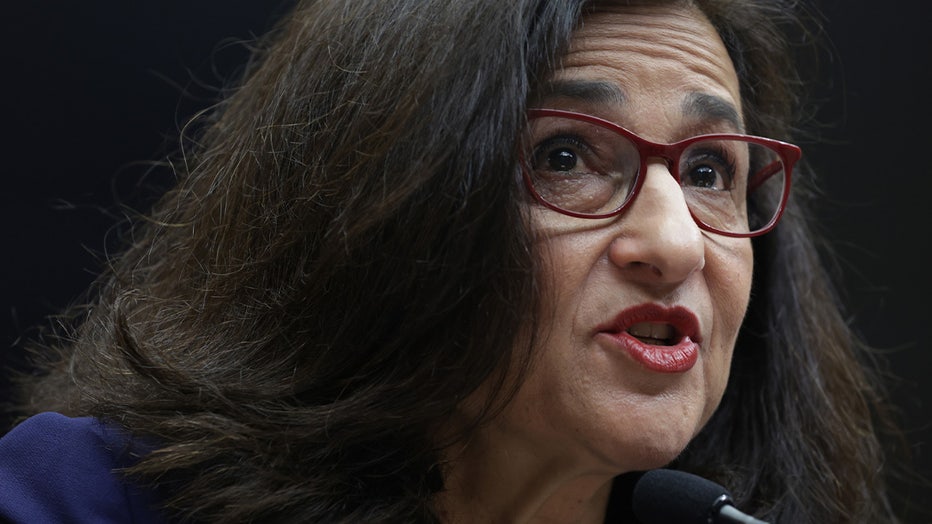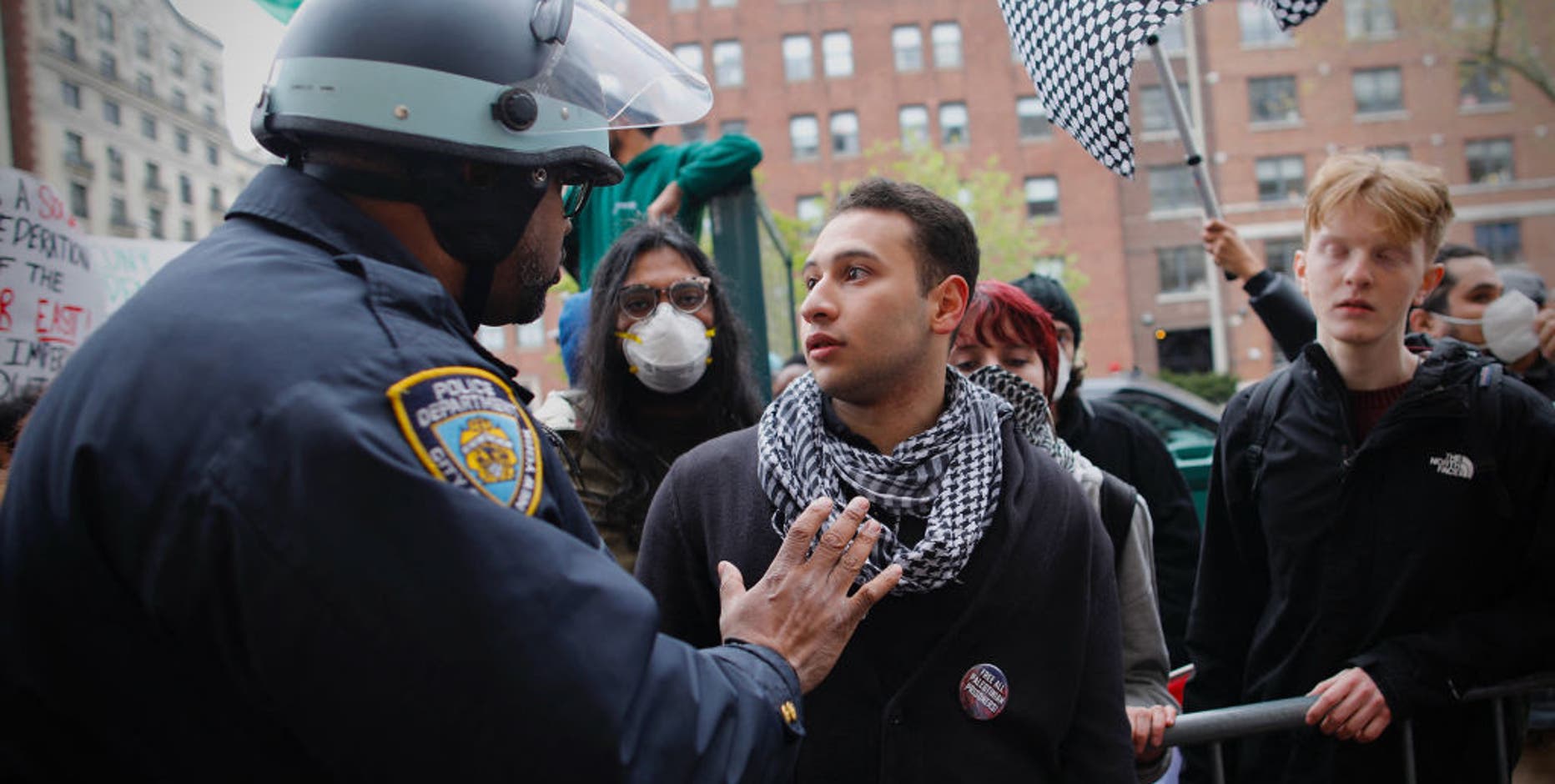Columbia University president 'deeply saddened' by campus protests

Columbia University president speaks to Congress
Four months after a contentious congressional hearing led to the resignations of two Ivy League presidents, Columbia University’s president unequivocally denounced antisemitism on her campus during an appearance before the same committee. Nemat Shafik is rebutting claims that she has allowed Columbia to become a hotbed of hatred.
NEW YORK CITY - Columbia University President Minouche Shafik said in a message to the school community Monday that she was "deeply saddened" by what was happening on campus.
U.S. House Republicans from New York urged her to resign, saying in a letter Monday that she had failed to provide a safe learning environment in recent days as "anarchy has engulfed the campus."
Shafik has been the president of Columbia University since July 2023.
Shafik testifies to Congress:
On April 17, President Shafik testified to Congress. Four months after a contentious congressional hearing led to the resignations of two Ivy League presidents, Columbia University President Nemat Shafik appeared before the same committee and unequivocally denounced antisemitism on her campus, rebutting claims that she has allowed Columbia to become a hotbed of hatred.
"We condemn the antisemitism that is so pervasive today," Shafik said in an opening statement. "Antisemitism has no place on our campus, and I am personally committed to doing everything I can to confront it directly."
Shafik was called before the committee to address questions of antisemitism and the school's response to conflicts on campus over the Israel-Hamas war. She was originally asked to testify at the House Education and Workforce Committee's hearing in December, but she declined citing scheduling conflicts.
With the advantage of hindsight, Shafik acknowledged there has been a rise in antisemitism on Columbia's campus but said it's far from pervasive, describing instead a campus split mostly over political differences. The "vast majority" of demonstrations have been peaceful, she said, and officials have worked to unite students.

President of Columbia University Nemat "Minouche" Shafik testifies before the House Committee on Education & the Workforce at Rayburn House Office Building on April 17, 2024 in Washington, DC. The committee held a hearing on "Columbia in Crisis: (Getty Images)
"We brought in extra security expertise and had regular contact with NYPD and the FBI," she said. "I have spent most of my time since becoming president on these issues, holding over 200 meetings with groups of students, faculty, alumni, donors, parents, some of whom are here, and 20 meetings with other university presidents to learn from each other."
History of protests at Columbia University
Columbia University has a history of protest, most notably in 1968, when hundreds of students angry about racism and the Vietnam War occupied five campus buildings. After a week, a thousand police officers swept in and cleared them out, making 700 arrests. The Associated Press reported at the time that 100 students and 15 police officers were injured.
Campus protests began after Hamas’ deadly attack on southern Israel, when militants killed about 1,200 people, most of them civilians, and took roughly 250 hostages. During the ensuing war, Israel has killed more than 34,000 Palestinians in the Gaza Strip, according to the local health ministry, which doesn’t distinguish between combatants and noncombatants but says at least two-thirds of the dead are children and women.
The Associated Press contributed to this report.


